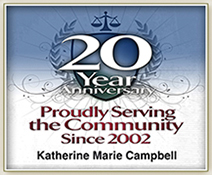Who Claims The Kids On Your Taxes When You’re Divorced?

When you and your spouse find yourself divorcing, the changes to your tax return may not occur until AFTER your divorce is finalized.
If you are still married at the end of the year, you won’t be able to file taxes using the Single tax filing status. However, if your divorce is finalized by December 31, then your filing status, along with other line items, will change based on what is recorded in your divorce agreement.
A good divorce agreement anticipates and addresses issues like this. To help you understand and address the complex issues raised by taxes and divorce I often suggest my clients include a financial neutral expert as part of their mediation or collaborative divorce process. They are an invaluable professional to help sort out complex financial landscapes and tax structures while also understanding and considering your family’s unique situation.
My clients often ask me during their marital dissolution process who can claim the child tax credit once their divorce is finalized. The answer isn’t always cut and dry.
It is very important for only one of you to claim the child per year, not both of you. Generally, the parent who has physical custody of the child the most (more than 50% of the time) generally gets to claim them on their tax filing.
The matter becomes grayer if the divorce agreement states otherwise. For example, parents with shared custody may alternate claiming the dependent exemption and other child tax credits. However, to be legally binding, such agreements must be explicitly included in your final written divorce agreement. The more you include in that agreement, the less confusion, work, and heartache you will have down the road.
It also ensures you both proceed in filing your taxes with the same understanding. Nothing lands both spouses in the IRS audit pool faster than having your tax returns conflict with your ex-spouse’s tax returns on the same issues.
At Campbell Family Law offices, Kathy Campbell helps her clients divorce differently because they deserve better choices in the outcome. She only works in the out-of-court processes of mediation, collaborative divorce, and collaborative mediation to provide clients the flexibility they need and want.
Contact Kathy today to see how she can help you and your spouse divorce amicably.
Note: This information is general in nature and should not be construed as legal/financial/tax/or mental health advice. You should work with your attorney, financial, mental or tax professional to determine what will work best for your situation.

